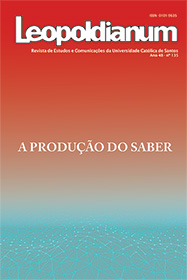DILEMAS DAS RELAÇÕES RACIAIS NO BRASIL: DO IDEÁRIO DA DEMOCRACIA RACIAL ÀS POLÍTICAS DE AÇÃO AFIRMATIVA NO ENSINO SUPERIOR
DOI:
https://doi.org/10.58422/releo2022.e1322Abstract
The objectives of the article are to rescue aspects of ethnic-racial relations in Brazilian society; as well as to outline a specific historical and social context that helps us think about the
uniqueness of Brazil that created its racism, based on the denial of this type of prejudice. In
this perspective, the text indicates the limits and social asymmetries of this creation. To this
end, it recovered the rise of scientific racism in Brazil, in the last decades of the 19th century,
with its unfolding strategy of racial whitening and its counterpart, the ideology of racial
democracy. It is important to consider the recognition of the public policies of affirmative
action in favor of Afro-descendants as one of the strategies to achieve the much-desired racial
democracy. The article concluded that, in the year of the bicentennial of the Independence
of Brazil, in which the revision of the Quotas Law has a decisive moment in the National
Congress, it is necessary to recognize that the policy of quotas has been allowing more members of the black and indigenous populations to access higher education. This needs to be a
path with no return.
Downloads
Published
Versions
- 2023-05-15 (6)
- 2023-05-15 (5)
- 2023-05-15 (4)
- 2023-05-15 (3)
- 2023-05-15 (2)
- 2022-08-19 (1)
Issue
Section
License
A Revista Eletrônica Leopoldianum - Revista de Estudos e Comunicações da Universidade Católica de Santos (ISSN: 2965-9566) é detentora dos direitos autorais de todos os artigos publicados por ela. A reprodução total dos textos em outras publicações, ou para qualquer outro fim, por quaisquer meios, requer autorização por escrito do editor. Reproduções parciais de artigos (resumo, abstract, mais de 500 palavras de texto, tabelas, figuras e outras ilustrações) deverão ter permissão por escrito do editor e dos autores.












